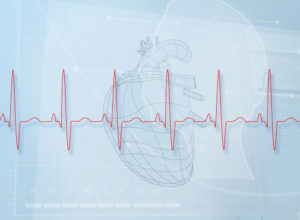New Jersey Bradycardia Negligence Lawyers
Attorneys for Low Heart Rate Birth Injury in NJ

Consistency of the condition also features largely in the prognosis. Fetal heart rate changes as the fetus grows, with the heart rate increasing as the pregnancy nears delivery. At six weeks, the FHR is 110, reaching maximum at nine weeks at 180, and then lowers again closer to delivery. However, occasional slowed heartbeat happens and it is vital for doctors and medical professionals to recognize this potentially dangerous sign of an underlying health problem.
In cases of fetal bradycardia, early diagnosis and treatment are critical to your child’s quality of life. If your obstetrician or pediatrician failed to anticipate, diagnose or treat your baby’s bradycardia in a timely manner, you may have grounds for a medical malpractice lawsuit seeking compensation on behalf of your child. Notably, medical malpractice lawsuits involving errors with fetal or newborn bradycardia must be filed within certain time limits in New Jersey. As such, speaking with a knowledgeable New Jersey bradycardia negligence attorney as soon as possible is extremely important to the success of your claim. We encourage you to contact our legal team now at (866)-708-8617 to discuss your child’s unique case. Our lawyers are highly equipped in the area of birth injury litigation and consultations are always available free of charge.
What Causes Fetal Bradycardia?
Fetal bradycardia arises from temporary fetal heart rate slowdowns from outside forces that compress the uterus and lower the heart rate, such as the fetus’s head being compressed during a sonogram, the umbilical cord position, low oxygen levels, heart defects, and a mother’s abnormal heart tissue. A slower FHR could mean higher risk for miscarriage or it could simply mean a miscalculation of the due date. On the other hand, bradycardia over the first trimester indicates a life-threatening genetic abnormality. Thus, diagnosis must be based on long-term observation of the heart patterns.
Fetal bradycardia is divided into several types describing the source of the FHR irregularity: defects of the sinus node, partial heart blockage, and total heart blocks. The sinus node sends electrical impulses and controls the heartbeat, acting like a pacemaker. Blocked heart beats are caused by defective electrical signals in the heart that cause extra heartbeats or missed signals from one part of the heart to another. The most dangerous bradycardia is a complete heart blockage and approximately half of all fetuses with bradycardia have complete blockages due to heart defects. The type of bradycardia is visible during an echocardiogram that looks at the structure of the heart, the valves, and heart contractions.
Diagnosis of Bradycardia in Fetuses and Newborns
Once a slow FHR is discovered, ultrasound is used to assess the fetus’s health. In the first trimester, fetal heart rate is harder to discern and yet, doctors must diagnose the condition early to prevent miscarriage and preserve the health of the developing fetus. Listening for a heartbeat via a Doppler device is routine for early pregnancy checkups to detect an irregular heartbeat. However, normal heart beats need to be closely examined over five to ten heart cycles to identify slight irregularities, accurately diagnose the condition, and take preventative action.
A maternal antibodies blood test and health history check for heart, autoimmune and other diseases can also help to determine the type of bradycardia preventatively. Total or partial heart blocks can be due to congenital heart disease or mother’s antibodies. Some forms of the condition are not harmful to the fetus, while some are linked to autoimmune defects, which may require lifetime monitoring. The critical step is finding the type of fetal bradycardia affecting your child and beginning treatment quickly.
Treatment for Fetal and Neonatal Bradycardia
When addressing this condition, treatment depends on the type of bradycardia affecting the fetus or newborn. For example, steroids and other medications are sometimes used to treat the condition but can also lead to complications that threaten the life of the fetus or health of the mother. Additionally, congenital heart blockages can cause bradycardia in newborns and may require implantation of a permanent pacemaker.
Neonatal bradycardia is measured by heart rate, like fetal bradycardia, but is primarily caused by low oxygen levels, decreased blood circulation, a collapsed lung, head injury, or drugs. The treatment consists of clearing airways for better ventilation and providing oxygen. If the newborn’s heart rate becomes dangerously low, then CPR and medication may be necessary to keep the baby’s heart pumping. Premature babies born less than 32 weeks, are susceptible to bradycardia, and may show signs in the NICU, or it may show later. Medication can decrease the episodes of slowed breathing and heart rate, which should be adjusted as the baby grows. Commonly, the condition disappears when the baby reaches its true gestational age. If not, the baby may have to be monitored at the hospital or at home in addition to administering medication.
Consult a NJ Infant Bradycardia Malpractice Attorney about Your Child’s Case
Bradycardia complications, largely due to oxygen deprivation, can leave a child with permanent heart conditions or brain damage that require life-long medical treatment. If a doctor misdiagnosed, failed to diagnose, or failed to properly treat your baby’s bradycardia and they suffered harm as a result, you should find out your legal rights and options to pursue justice and compensation. You can reach our highly skilled NJ infant bradycardia malpractice lawyers at (866)-708-8617 or contact us online for a free consultation.
Resources:
- Obstetrics and Gynecology: Fetal bradycardia, Cancer Therapy Advisory
- Treatment Of Fetal And Neonatal Arrhythmias, US Cardiology Review
- Primary bradycardia: keys and pitfalls in diagnosis, Ultrasound in Obstetrics & Gynecology (UOG)
- Neonatal bradycardia: treatment, Open Anesthesia
Related Reading:
